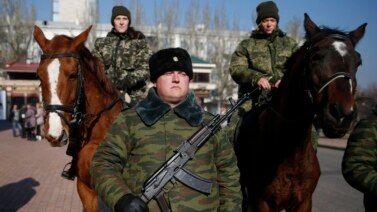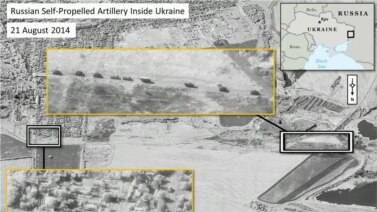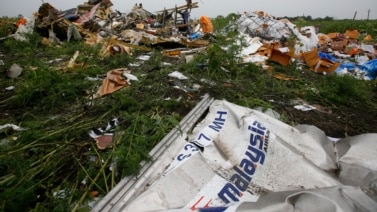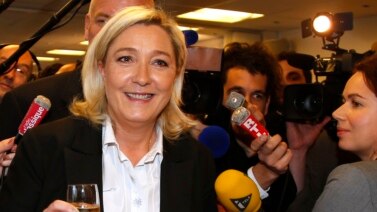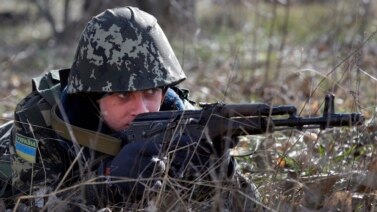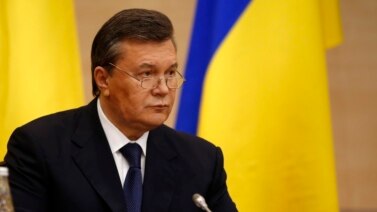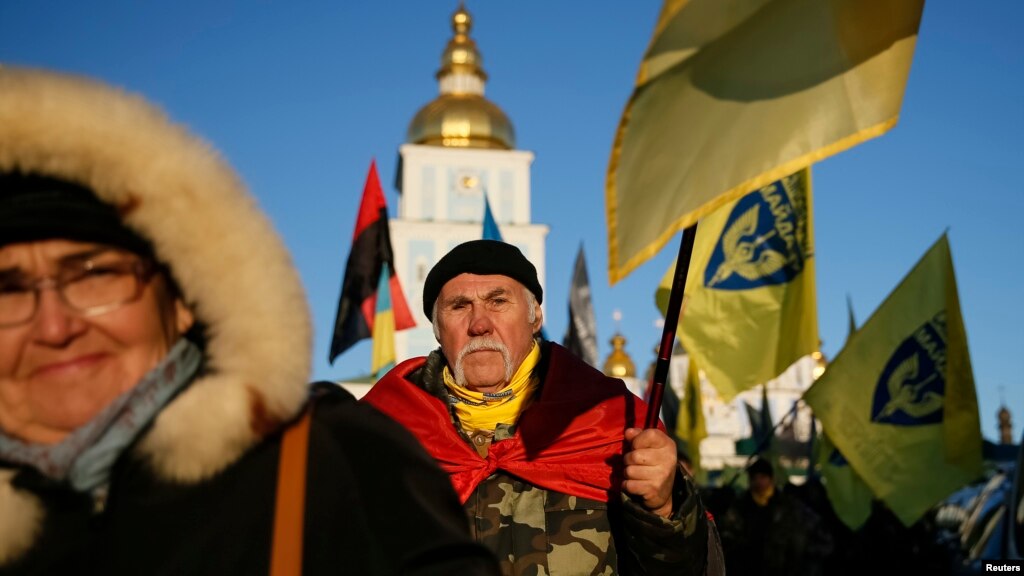
The pro-European revolution in Ukraine was one of the big stories this year. Ukraine replaced its pro-Russia president with leaders interested in reaching out to the rest of Europe. But a short time later, Ukraine lost control of the Crimean peninsula to Russia. And the Russian government continues to support pro-Russia rebels in Ukraine’s east.
Many people are worried the country will remain weak or conditions will worsen in the weeks to come. Some political observers say the Russian actions are a threat to both Russia and Ukraine.
The leaders of Ukraine recently marked the anniversary of the country’s Euromaidan revolution not with celebration, but as a serious event. One year has passed since the start of protests that led to the ouster of President Viktor Yanukovych. Family members of protesters killed in the clashes have yet to see justice. And thousands of people have died in fighting with pro-Russian rebels in the east.
The fighting has been a major concern for Ukraine’s new leaders. Yuri Yakymenko is with the Razumkov Center in the capital, Kyiv.
He says that, “For the first time in the independent history of Ukraine, we are in a state of war against the biggest aggressor … we can even say adversary. We should call it like it is.”
But most Ukrainians say the sacrifice for a European future is worth it. Valentina Bilan was among the protesters in Kyiv.
She says, “We’ve elected a parliament. Let’s hope that it will work. Everything will be fine in time. We will remember my words. I went through the Orange Revolution. The scariest thing after revolution is that people should not be disappointed.”
The fighting has also moved attention away from economic and political reforms in Ukraine and Russia. Conditions in both countries are getting worse.
Yuri Pivovarov is with Russia’s Academy of Sciences. He says the decision of President Vladimir Putin to expand into Ukraine is a threat to Russia’s democratic successes. He says the war in Ukraine is also a war in Russia. In Russia, says Mr. Pivovarov, the whole government is warring against people who oppose Russia’s policies or have a different opinion.
Dmitri Trenin is director of the Carnegie Moscow Center. He says there appears to be little interest in a much-needed compromise between Russia and Ukraine.
“Particularly in the West, because any compromise at this point will be seen as a concession to Putin. And this is totally unacceptable. But if that’s the case, then the only exit out of it should be the collapse of the regime here. And since this is how it is more or less read in the Kremlin, this raises the stakes enormously high for Russia.”
Ukraine’s leaders will have a lot of work in the months ahead. They will seek to deal with a Russia that is becoming more powerful. At the same time, they will have to reform the corrupt political culture that led to the Euromaidan revolution.
I’m Bob Doughty.
This report was based on a story from VOA correspondent Daniel Schearf. George Grow wrote this story for VOA Learning English. Kelly Jean Kelly was the editor.
Words in This Story
revolution - n. a violent protest; fighting for a change in the way people live or work
control - v. to direct to have power over
observers - n. people who see and watch someone or something
protests - n. demonstrations
Now it’s your turn to use these Words in this Story. In the comments section, write a sentence using one of these words and we will provide feedback on your use of vocabulary and grammar.
